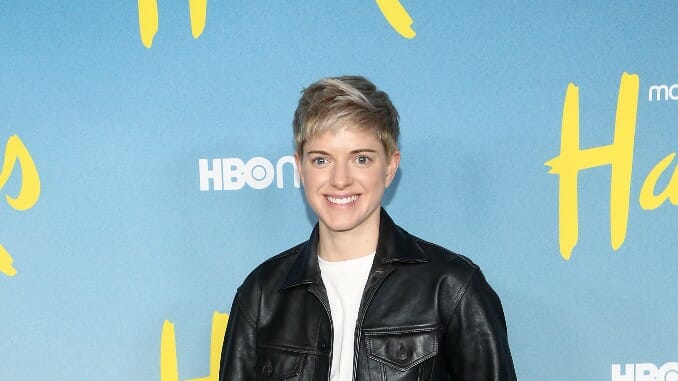Mae Martin’s Sap Is a Warm Reappraisal of Our Messy Times
Photo courtesy of Phillip Faraone / Getty Images
In their 2017 stand-up special Dope, comedian Mae Martin likened addiction to an intemperate French-Canadian shrimp curled inside our brains, constantly dozing off and jolting awake, itching for pleasure when conscious. The slimy little Francophone is a hedonist and, as any addict will tell you, a light sleeper. “When your shrimp wakes up, it’s bad news,” said Martin. “He will eat the rest of your brain.”
Compulsions, in one way or another, have informed all of Martin’s work to date. Their past addictions (chiefly, narcotics and love) are the thematic underpinnings of their acclaimed Netflix series Feel Good, a semi-autobiographical account of Martin’s past relationship with a previously heterosexual woman. The series explores how shame shapes intimacy and how easily one addiction can be swapped out for another, with its second and final season reckoning with sexual abuse and misplaced love.
Feel Good fell into my lap at the right time, when seeing an unequivocally queer and flawed relationship had the power to rock my shit in more ways than one. I was suddenly kinder to myself and more forgiving to those who forgot to extend me that same kindness; I began to understand how abuse necessitates repression; I stopped fearing closure. My brain shrimp picked up night shifts.
It would be a gross disservice to relegate Martin to a “type” of comedy when their work is so intimate. But addiction and queerness are paramount to their storytelling, onstage, onscreen, and in print, as they also penned the 2019 novel Can Everyone Please Calm Down: A Guide to 21st Century Sexuality. As such, the comedian-writer-actor has accrued a decidedly queer following, the likes of which eagerly packed into Toronto’s Danforth Music Hall for their new show Sap.
-

-

-

-

-

-

-

-

-

-

-

-

-

-

-

-

-

-

-

-

-

-

-

-

-

-

-

-

-

-

-

-

-

-

-

-

-

-

-

-








































